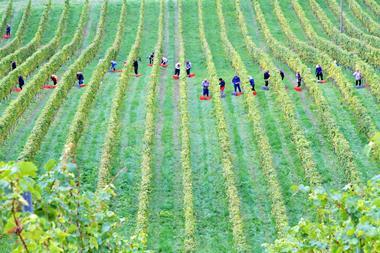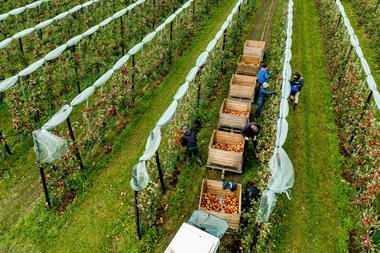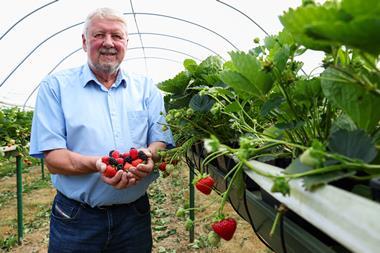
Food sector bodies have welcomed the findings of the Migration Advisory Committee’s review of the Seasonal Worker scheme.
The review, published this week, found there was a clear need for a Seasonal Worker scheme in the short to medium term as it would provide “certainty to businesses who operate in a sector unusually reliant on migrant labour”.
The committee made five recommendations for the scheme, including for the government to provide further certainty around its future and for employers and businesses to be given five years’ notice if the scheme is to close.
The review also recommended that visas be more flexible to enable employers to plan ahead more efficiently and for workers to maximise their earnings.
This could be achieved by shortening the current ‘cooling off’ period from six months to three months and allowing workers to work any six-month period in an individual calendar year.
“We are pleased to see that the MAC recognises how significantly important the SWS is to domestic food security, set against a backdrop of global instability and climate change,” said NFU president Tom Bradshaw.
“It is especially pleasing that the review reinforces the NFU’s call on the government to provide certainty about the future of the scheme, allowing food producing businesses to plan ahead,” he added. “This was alongside a number of other recommendations agreeing with asks the NFU has been campaigning on for many years.”
MAC found that the lack of pay data for those on the visa made effective monitoring very difficult. The committee recommended that seasonal workers were guaranteed at least two months’ pay in order to cover their costs and reduce the risk that low-income workers are required to take.
It also called for the process of workers getting a refund for pension enrolment to be made clearer and simpler.
The committee acknowledged an “inherent power imbalance” between employers and workers.
“It is positive that many employers are undertaking significant steps to improve the welfare of those on the route, but there also appear to be a handful who are not doing so,” said the committee.
It also nodded to issues of unofficial agents taking payment abroad and workers accruing large debt to come into the country.
Read more: Does Buy British stand a chance? Fresh produce category report 2024
MAC recommended a more co-ordinated approach between the bodies currently involved in worker welfare and a clearer delineation of responsibility for each. It also said worker rights must be clearly communicated in the worker’s own language.
“Worker welfare is a top priority for our members,” said Bradshaw. “We continue to engage with all parts of the supply chain to ensure the skilled people who travel to the UK to help produce food for the nation have a positive experience.”
He added that the government had pledged to introduce a single enforcement body and said the union looked forward to working with it on this.
“The industry is already highly regulated and audited, so it is important to limit the level of duplication,” he said.
The final recommendation from the committee was to give consideration to the ‘employer pays principle’ as seasonal workers currently bear the costs of both their visa and travel to and from the UK.
It said work needed to be done to investigate how these costs might be more equitably shared along the supply chain.
Read more: Sedex to press ahead with controversial new seasonal worker auditing requirements
This recommendation comes following a recent change to the SMETA audit by industry standard the Supplier Ethical Data Exchange (Sedex), which will require farming and growing businesses to pay for the recruitment and transportation fees of the seasonal workers they employ under a so-called ‘employer pays principle’.
The change, due to kick in this September, was met with dismay from the NFU, which said it was a “consistency and fairness issue” as the standards were “clearly unachievable”.
The Sedex change is expected to cost the industry an additional £90m a year.
“There are recommendations made by the MAC, including points around the employer pays principle and employment length, which we need to look at in further detail to see how this would impact the range of farming and growing businesses we represent,” said Bradshaw.
“As highlighted by the review, certainty is key to the success of the scheme for British farmers, growers, workers and consumers alike,” he added, calling for the new government to commit to a rolling five-year scheme.
“Certainty is the currency with which businesses trade, and having this commitment would help to restore some of the lost confidence of British farmers and growers.”



















No comments yet